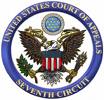Teaching E-Negotiation
 Andrea Schneider has an interesting new paper on SSRN entitled “You’ve Got Agreement: Negoti@ting via Email.” Andrea and her coauthors explore what is different about negotiating by email, as opposed to in person, and discuss how teachers of negotiation might better prepare students for the practice of e-negotiation. (Andrea discussed her personal experiences with email negotiation in the classroom in an earlier post.) This seems to me an important topic. I do as much of my negotiating as possible by email, which I prefer so that I can take greater care with the words I use and so that I have a reliable record afterwards of who said what. I suspect many other negotiators feel the same way.
Andrea Schneider has an interesting new paper on SSRN entitled “You’ve Got Agreement: Negoti@ting via Email.” Andrea and her coauthors explore what is different about negotiating by email, as opposed to in person, and discuss how teachers of negotiation might better prepare students for the practice of e-negotiation. (Andrea discussed her personal experiences with email negotiation in the classroom in an earlier post.) This seems to me an important topic. I do as much of my negotiating as possible by email, which I prefer so that I can take greater care with the words I use and so that I have a reliable record afterwards of who said what. I suspect many other negotiators feel the same way.
The paper appears in print as a chapter in the book Rethinking Negotiation Teaching: Innovations for Context and Culture. I look forward to a follow-up on negotiation by texting.


